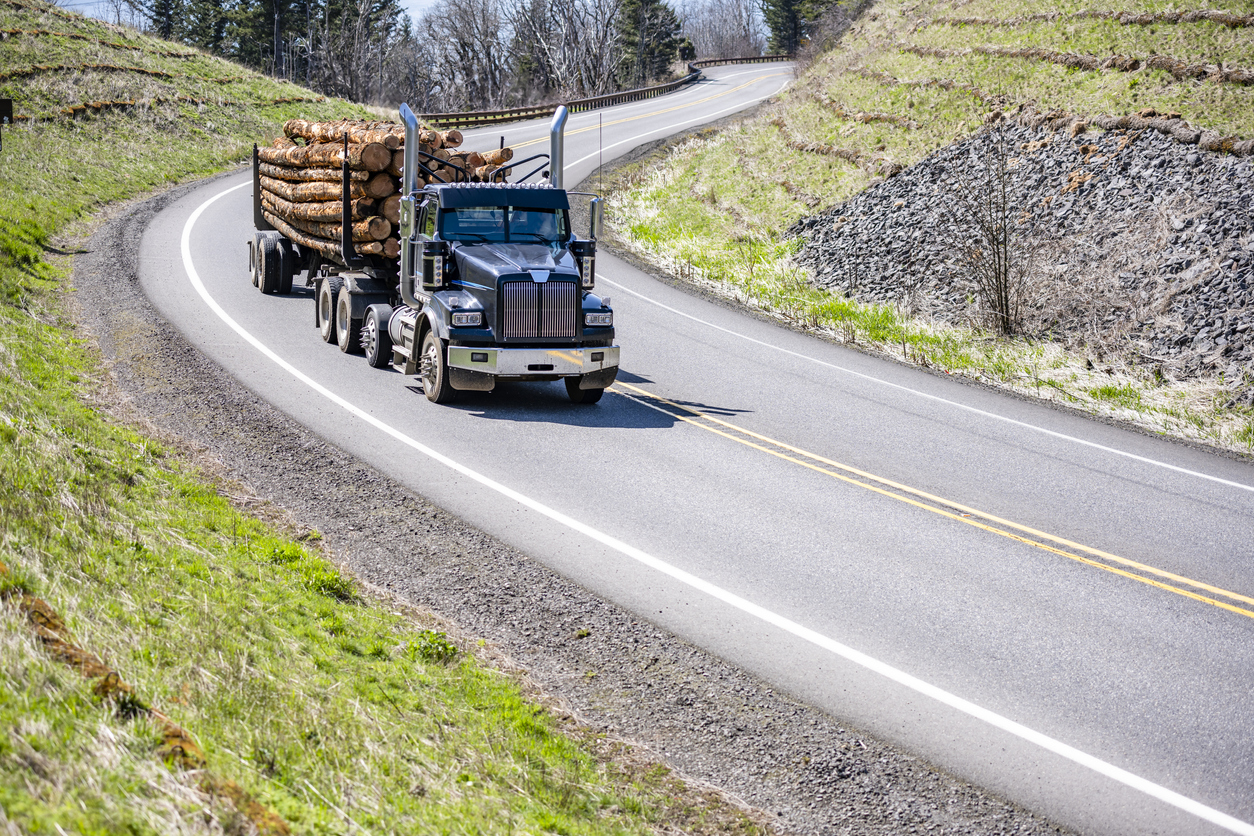You've probably heard that you can do many things with truckload shipping, but what exactly is it? And how does it compare to other shipping options? Well, you're in luck. We're here to help clear up the confusion with these commonly held myths about truckload shipping and what they really mean.
Truckload shipping is a type of freight transportation that allows you to move large amounts of goods in one trip. It's a great way to move products if you have a large quantity of cargo or pallets that need to get to where it’s going ASAP. Truckload shipping can be helpful if you move products from one facility to another or ship directly from the manufacturer to consumers, among other circumstances where you have more than a few pallets to ship out.
And while trucking companies offer different types of freight services, such as intermodal, less-than-truckload (LTL) and full container loads (FCL), truckload shipping is still the most popular mode of transportation in North America.
In this article, we'll explore three common myths about truckload rates, why they're wrong, and what you can do instead.
Ready? Let’s get trucking!
What are Full Truckload Rates?
So, you've got a load of freight – but you don't know whether to ship it LTL or FTL. If your answer is "yes," you're in the right place! Let's get into what you need to know about full truckload shipping.
So, what is full truckload shipping? And what does it mean to get a quote for full truckload rates?
Full truckload (often shortened to FTL) shipping refers to transporting goods from one location to another using an entire truck. FTL is often held in contrast to less-than-truckload (often shorthanded to LTL) shipping, which uses only part of a truck or trailer for transporting goods, and where you share the load capacity with other shippers. When you get a quote for full truckload rates, you're finding out how much it costs to send a particular shipment or regular cargo order. Full truckload rates can be by the kilometre or the mile or for the trip's overall price.
You can get full truckload rates and shipments on different types of trucking equipment, including the ones in the table below.
Type of Vehicle Used in Full Truckload |
Description |
Dry Van |
The dry van is typically used to transport dry goods that are not temperature-sensitive. |
Flatbed |
This trailer does not have walls and is typically used for shipments that cannot be loaded through trailer doors or are too large and don't need protection from the elements. |
Refrigerated |
Equipment used for these shipments ensures the freight is kept at the appropriate temperature. |
While this process can be more expensive than less-than-truckload (LTL) methods, some benefits may make it worth considering depending on your needs. Full truckload rates and shipping provides several advantages over LTL options.
For example, if you need to transport your items quickly, FTL shipping is a good option. This process allows you to move your goods directly from one location to another without stopping at any intermediary stops along the way. And if your cargo is fragile or valuable, it can be safer when transported in an entire truck rather than using a shared truck in LTL.

Basically, you can consider full truckload rates as utilizing an entire truck for just your shipment of goods and cargo rather than sharing a truck with other shippers.
3 Full Truckload Rate Myths Debunked
It's no surprise that full truckload shipping is a great option for businesses that need to move large amounts of freight. But there's more than one myth out there about full truckload rates, and they can be confusing, especially for newbies!
Let's debunk some of these common myths about truckload rates and shipping, so you know the real scoop on this common shipping method.
Myth #1: Truckload shipping is not Always More Expensive than LTL
Indeed, the cost of full truckload shipping depends mostly on the distance and carrier you choose when it comes to FTL. In contrast, the cost of LTL shipping depends on the number of pallets, weight, and freight class – a wider variety of factors than FTL.
This includes the freight class, which helps to determine the cost of your LTL shipment. Freight rates by the National Motor Freight Traffic Association (NMFTA) classify shipments into 18 categories.
Freight classification for LTL rates is determined by factors such as:
- Product density
- Product value
- Liability
- Handling needs
- Stowability
As you can see, more things can vary when you're getting LTL rates versus full truckload rates.
To get the most accurate rates from FTL shipping, you need to include as much information as possible about your shipment:
- The size and weight of your shipment
- Whether it has any special requirements for handling, delivery, or storage (like refrigeration)
- The type of materials being shipped and their freight class
- The location it's coming from and where it needs to go
The more information you can provide, the better your pricing will be.
Myth #2: Truckload rates are Usually Not Worth It
Truckload rates are not always more expensive than less-than-truckload (LTL) shipments, as some companies have better rates than others for full truckload shipping. In fact, you can save money if you compare the rates of different companies and their various kinds of services – some offer discounts for volume shipping, while others charge more when you're sending a few pallets at a time.
The bottom line is that if you're shipping more than the full truckload rate minimum, it's best to go with full truckload shipping. If you're sending less than the minimum, sending your cargo by LTL will likely be the cheaper option compared to full truckload rates.
So what's the cut-off number you should keep in mind?
Most full truckload rates and shipments consist of:
- A full truck's space
- 26 or more pallets
- An average freight weight of 44 000 lbs or more
That means that if you're sending 28 pallets of textbooks, for example, you'd want to check the full truckload rates and more than likely, it will be the best option. This is also true of lightweight items, like clothing.
The more questions you can ask your freight carrier, the better the idea that they can give you on full truckload rates.
Myth #3: Truckload shipping has No Extra Benefit over LTL
This myth is mostly true, but there are some exceptions. When you ship full truckload, your shipment is handled fewer times than if you were to ship via an LTL carrier. And since the risk of damage or breakage increases each time something is handled, this can be an important benefit.
In addition to this, when you ship in a dedicated trailer for your shipment (rather than part of a larger load), you don't have to share space with other shippers. This means that when a shipper picks up and delivers your freight by the truckload, they do not have any other shipments competing for space with yours in a trailer.

This also reduces the chance of damage during transit as each item has its own designated area within the trailer and doesn't have to compete with other items for space on the flatbed or under deck carriers (like most trailers used by LTL carriers).
FAQs
Who Uses Full Truckload Shipping?
Full Truckload (FTL) is a type of shipping that is used by companies that need to move large shipments of goods. If you're looking to ship more than 44,000 pounds or 26 pallets in one load, FTL may be the best option for your business.
Common customers who need full truckload rates include:
- Food and beverage
- Medical supplies
- Household products
- Construction
- Giftware and novelties
- Health and medical supplies
- Automotive
- Pet supplies
- Electronics
- Clothing and textiles
- Fitness equipment
- Electronics
There are several types of truckload carriers, and they each have different pricing structures, so it's important to understand which works best for your needs before deciding on an FTL carrier. LTL shipments offer less flexibility and lower cost per mile than FTL carriers, so that's something to consider and weigh what is most important to you and your cargo.
How Much Does It Cost to Ship a Full Truckload?
The cost per mile of shipping can vary depending on various factors. These include the type of freight being shipped, the type of truck and trailer involved in the shipment, and even which trucking company you choose.
The best way to determine how much your full truckload rates are going to be is to contact your provider and get a quote so your budgeting can be more accurate.
When Should You Use a Full Truckload?
The where and when to use certain types of logistics is often the most challenging thing to get a handle on.
Here’s the quick reference guide to when you should seek out the best full truckload rates:
- When you need to ship a large number of goods.
- When you need to ship goods in one trip
- When you need to ship a lot of goods in a short period of time
- When you need to ship heavy items that can't be combined with other shipments for various reasons
- If your load is time-sensitive (such as perishable products like produce or flowers)
What Is the Maximum Weight for a Full Truckload?
The vehicle's capacity determines the maximum weight for a full truckload. Generally speaking, FTL freight loads cannot exceed 80,000 pounds without special permits. When you haul a product that is particularly heavy, you will benefit from extra space, but the weight maximums will still bind you.
Most standard 53' trailers can hold 42,000 to 45,000 pounds (depending on truck and trailer type) when they're fully loaded with freight – so it's crucial that you know how much your load weighs before accepting an assignment or booking a shipment.
How Much Does a Full Truckload Trucking Rate per Kilometer in Canada?
You've probably heard that many different factors influence the cost per kilometer of a trucking shipment.
However, there are three main components that impact full truckload rates:
- Fuel costs
- Auto repair and maintenance costs
- Truck insurance
If you're moving an entire load, then all of these factors contribute to determining how much you will pay per mile. In addition to those considerations, there are also tolls that need to be taken into account.
The trucking industry is extremely competitive, so rates always fluctuate based on how much freight is moving around at any given time. This means it's important for businesses looking for transportation services to know their options and find a qualified freight broker who can help them get the best possible deal on their shipments from start to finish without breaking their budget!
Final Thoughts
If you're trying to figure out whether truckload shipping is right for your business, we hope the answers to these questions have given you some insight.
If you're still unsure about how much it costs or what kind of benefits full-truckload shipping has over other methods, we encourage you to talk with one of our team members. We would be happy to answer any questions and help you decide how best to move your goods across Canada and beyond!
 (604) 757 2441
(604) 757 2441